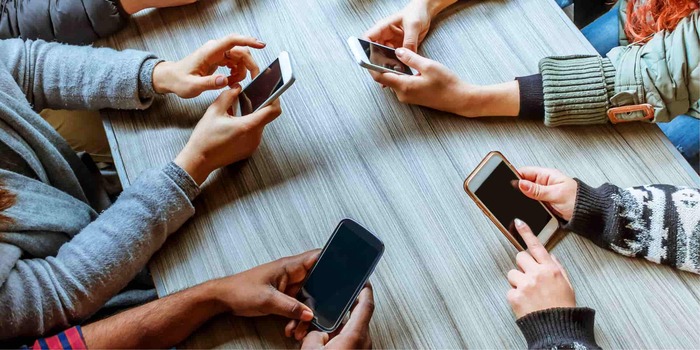There was a time, not too long ago when mobile phones were considered fresh and intriguing technology. Now, it’s almost impossible to spot a location without the ubiquitous presence of smartphones.
From reaching out to a friend, searching the nearest café, or staying updated with the latest news, your mobile phone is your go-to tool. Considering that smartphones have woven themselves into the fabric of our daily existence, it becomes essential to understand their relationship with our health. Read on for a comprehensive overview of how your mobile phone impacts you.
Depression
There is escalating evidence correlating the use of smartphones with surging rates of depression and suicide, predominantly in teenagers. A specific study indicated that adolescents persistently engaged with their smartphones tend to experience lower levels of contentment. The research found that adolescents who overused digital screen devices displayed less happiness than their peers who indulged more in activities not involving screens.
Interestingly, complete avoidance of digital screen devices did not necessarily result in higher happiness levels. The teenagers who seemed the happiest were those who managed to find a balance, limiting their use of digital media to roughly an hour each day. EMDR training has been found to help treat underlying issues with depression that may stem from excessive smartphone use.
Sleep Disturbances
Consistent smartphone use, particularly towards the end of the day, often leads to disturbed sleep. Viewing your phone at night has negative effects on your brain. The luminous blue light that smartphone screens produce is the issue.
This light, similar in brightness to sunlight, confuses your brain during nighttime. This confusion results in your brain ceasing melatonin production, the hormone that signals your body it’s time for rest. Interference from your smartphone’s light can upset your sleep pattern, making falling and remaining asleep more difficult.
Chasing Dopamine
The dependency on any substance or behavior is largely attributed to the brain’s chemical responses, primarily involving the neurotransmitter dopamine. Dopamine is a neural courier, transmitting signals that drive us to seek rewards. It’s the neuroplastic alterations stemming from this process that lead to addiction.
Each instance of receiving a notification on your phone prompts your brain to release dopamine. Over time, this pattern conditions your brain to release dopamine even in anticipation of a notification. This premature dopamine surge fosters a compulsion to continually check your phone for the same neural response. Consequently, you may become increasingly absorbed in your phone, neglecting other crucial activities.
Decreased Capacity to Establish Connections with Others
Cell phone distractions can be divided into two distinct types by some scholars: endogenous and exogenous. Distractions that are endogenous originate from your own thoughts, rather than the device itself. On the other hand, exogenous distractions are caused by phone alerts like vibrations and rings.
These exogenous elements can disrupt a conversation, as it’s challenging to concentrate on what another person is saying when your phone is constantly buzzing in your pocket. Interestingly, endogenous factors can be equally diverting.
Research has found that merely having a cell phone within sight can trigger the owner to resist the temptation to check it, which can be highly distracting. This implies that if your phone is in your line of sight, your own mind can divert your attention from an in-person interaction.
Endnote
Most studies suggest the impact of increased smartphone usage is mild to moderate. Intense usage doesn’t necessarily lead to mental health issues. The majority of these studies are also based on correlations, so it’s unclear whether smartphone usage triggers mental health symptoms or if these symptoms encourage more smartphone use.
For instance, those suffering from depression might be more inclined to use their smartphones as a means of seeking social interaction. Likewise, individuals with anxiety may frequently check their social media feeds.


